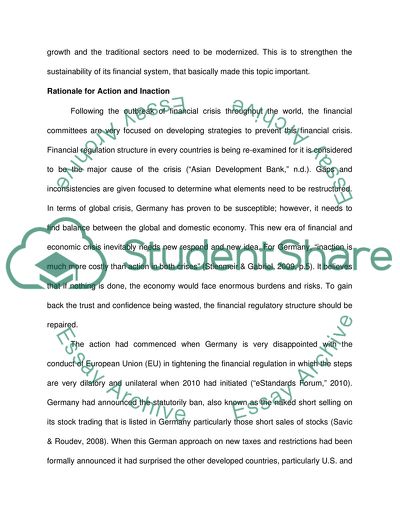Cite this document
(Strengthening the International Financial Regulatory System in Germany Term Paper, n.d.)
Strengthening the International Financial Regulatory System in Germany Term Paper. Retrieved from https://studentshare.org/macro-microeconomics/1741459-germanys-position-on-strengthening-the-international-financial-regulatory-system
Strengthening the International Financial Regulatory System in Germany Term Paper. Retrieved from https://studentshare.org/macro-microeconomics/1741459-germanys-position-on-strengthening-the-international-financial-regulatory-system
(Strengthening the International Financial Regulatory System in Germany Term Paper)
Strengthening the International Financial Regulatory System in Germany Term Paper. https://studentshare.org/macro-microeconomics/1741459-germanys-position-on-strengthening-the-international-financial-regulatory-system.
Strengthening the International Financial Regulatory System in Germany Term Paper. https://studentshare.org/macro-microeconomics/1741459-germanys-position-on-strengthening-the-international-financial-regulatory-system.
“Strengthening the International Financial Regulatory System in Germany Term Paper”. https://studentshare.org/macro-microeconomics/1741459-germanys-position-on-strengthening-the-international-financial-regulatory-system.


